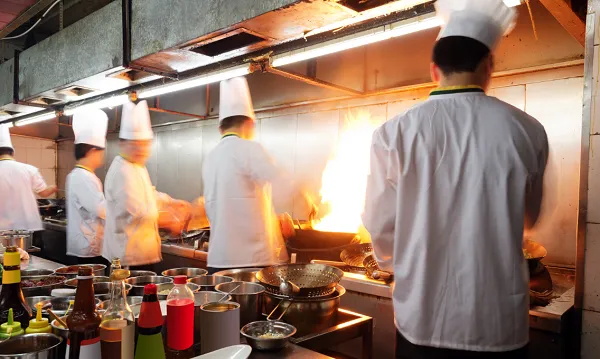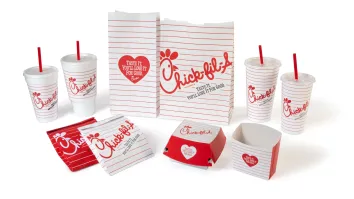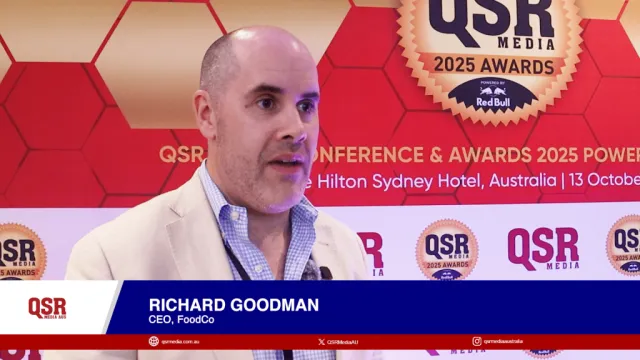
Why authenticity is non-negotiable for QSRs in the digital ordering age
While it is true that the modern business can only thrive when they focus on customer experience, product quality and technological prowess, there’s one often overlooked quality that QSR brands must master if they wish to woo the digital ordering crowd: Authenticity.
Millennials, which are starting to take over the driving seat of dining out and digital ordering, value authenticity and will have no qualms ditching brands that attempt to fool them. This was one of the insights during recent Oracle Hospitality Roundtables on digital transformation happening in foodservice held in Sydney and Melbourne. Looking to foster senior-level dialogue and engagement through these forums, Oracle invited representatives from popular chains, including a Porchetta, Lennard’s Chicken, Nando’s, Grill’d Healthy Burgers, Town & Country Pizza, Ferguson Plarre Bakehouses, Bubba Pizza, PappaRich, PCG Consultancy, The Sporting Globe, Caltex / Nashi, Fonda, Lord of the Fries, and Love Pollo.
Brand familiarity through authenticity
Digital ordering resonates with those who embraced technology at an early age, namely Millennials and Generation Z, especially because of the convenience this brings to their increasingly flexible, social and home-based lifestyles, says Ciara Clancy, director Australian foodservice at The NPD Group and moderator of the roundtable.
One in four consumers of eating out in the industry are now from the Millennial generation, and for this crowd of 18- to 34-year-olds, brand loyalty is continually earned through unwavering authenticity over repeated interactions. When Millennials become familiar with a brand – what it serves, what it stands for – it creates a powerful connection that likely leads to increased and sustained sales.
“They are not brand loyal people,” says Clancy of Millennials. “They get to know the brand. It’s not about being the biggest brand, and that’s why [retailers] all have to adapt to this case.”
One industry insider that attended the roundtable attested to the power of authenticity in swaying the minds of Millennials: “They think they can fool Millennials, but they make sure and validate what businesses are saying. You don’t get away with BS the way you used to in the past.”
The insider explains that Millennials now routinely use Google and other search tools to confirm the claims of QSRs, especially when it comes to claims relating to food quality and servings as health-consciousness rises.
“People’s definition of healthy has changed, it’s not about low fat low carb, it’s not just that. It’s a wider sense. It’s about cleaner eating, it’s responsible consumption in so far as the protein base, the origin of the food, all those things are ahead of low carb,” says Clancy.
Dominating digital ordering with authenticity
What does this mean for QSRs that want to dominate the digital ordering space? Brands that make a little more effort when it comes to presenting their origin story will make it easier for Millennials to appreciate their brand and support through repeated product orders.
“I don’t want the brand, I want something that means something to my life,” says Clancy of the Millennial mentality when it comes to selecting the QSR chains not only when driving around or walking in the mall, but also when browsing online and third-party aggregators.
As an example, she says Starbucks routinely talks about and shows how for every tree they use up for coffee beans, they plant another tree, presenting a powerful story of responsible consumption. A similar approached is used by Shake Shack in the US where it shares that their root beers come from their local supplier and how they develop their own lemonade in-house.
“Origin is so important,” says Clancy.
“When I actually go out and eat, I’m always interested in where the food came from, how close it was to the farm. Just simple things like that, but that is the trend. I’m starting to see that,” shared an industry insider.
Clancy adds that third party aggregators are doing so well these days – 40% of digital orders are made through the likes of Menulog, Foodora and UberEATS – because they offer Millennials the chance to discover and choose brands that really fit their lifestyles and particular food craving at the moment.
“Offering a choice from many brands and you pick within that that suits your needs. They’ve completely tuned in to what Millennials are looking for, which is not a brand based offering anymore,” she says.
Reliability and centralisation
While brands do more to craft an authentic image, they must also install restaurant point-of-sale (POS) systems that are highly reliable and centralised. Doing so ensures that the restaurant’s service lives up to the advertised promise and the customer’s own high expectations.
“The competitive nature of the market means you can’t afford any downtime. You need a robust and reliable system that will allow you to keep transacting, even if the internet goes down,” says Grahame Tate, vice president, hotels and F&B, JAPAC Oracle Hospitality.
For a multi-site operation, which is applicable to many QSRs, a centralised POS solution offers simplified, agile management and control. It assures customers that when they step into two different branches, they will receive the same level of product and service satisfaction.
“If every POS terminal can be updated from a central location, it gives the business complete control over menus, pricing and promotions,” says Tate. “This helps to maintain a consistent brand and guest experience.”
The future also holds promising technology such as artificial intelligence that could further help QSRs develop more authentic and personalised service to customers.
Beyond the robots that it powers, AI could transform menu creation into personalised nutrition plans, using health-related algorithms that factor individuals’ DNA, current health status and food history, according to Oracle Hospitality’s 2025 Report, which outlines the current status and forecasts the use disruptive technologies based on responses from more than 250 restaurant operators.
“Although cost has been a barrier to date, AI’s superior forecasting should help restaurants better manage labor, inventory and operations,” the report said.
But trust needs to remain a central consideration when developing AI applications, given that more than two out of three consumers said they would find suggestions based on their digital footprint such as Facebook use to be invasive.
“Consumer privacy needs to be respected and safeguarded. As beneficial as a technology might be, if it can’t be trusted – it’s useless, the report added. “Technology proponents need to educate consumers to quell fears and establish protocols and security for safe usage.”
























